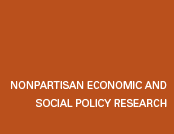|
|
Adolescents
|
 Featured Links Featured Links
Related Policy Center
Related UI Researchers Publications on Adolescents | Viewing 1-5 of 272. Most recent posts listed first. | Next Page >> |
Five Questions For Mary Cunningham (Five Questions)Mary Cunningham, author of "Preventing and Ending Homelessness—Next Steps," answers five questions about how to combat homelessness. Evidence-based approaches have cut homelessness among chronically homeless single adults and new strategies are now being adopted to help homeless families. Investing in proven strategies is crucial as the economic crisis puts more people at risk of ending up in shelters and threatens to reverse the progress communities have made toward ending and preventing homelessness. | Posted to Web: April 22, 2009 | Publication Date: April 22, 2009 |
Susan Popkin to Head the Urban Institute's New Program on Neighborhoods and Youth Development (Press Release)Susan Popkin, a senior fellow at the Urban Institute and an expert on public housing, has been named the director of the Institute’s new Program on Neighborhoods and Youth Development. | Posted to Web: April 22, 2009 | Publication Date: April 22, 2009 |
Every Kid Counts in the District of Columbia: 15th Annual Fact Book 2008 (Research Report)The 15th annual Fact Book is a comprehensive data source for indicators of child well-being in the District of Columbia. Over 50 data indicators are tracked over time. This publication provides a broad perspective on the status of children and youth in the District. We seek to inform and educate our readers about the issues affecting children and their families in the District. We encourage community residents, policy makers, professionals, and others who work with and/or on behalf of children and families to create conditions that foster the optimal health and development of our children. | Posted to Web: April 15, 2009 | Publication Date: December 01, 2008 |
A Safety Net For the Least Fortunate (Commentary)In this Washington Post commentary, Institute Fellow Harry Holzer suggests ways to help those most adversely affected by the economic downturn—low-income single mothers, disadvantaged adults, youths, and their families. | Posted to Web: February 17, 2009 | Publication Date: August 19, 2008 |
The Economic Recovery Package Will Help Poor Older Adults, but More Could Be Done (Fact Sheet / Data at a Glance)Older adults often are left out of policy conversations on poverty because many believe that relatively few of them experience economic hardship. Yet an updated measure of poverty indicates that the rate for adults ages 65 and older matches the rate for children. The Economic Recovery package under consideration includes some provisions that would benefit older adults, but more could be done. One-time payments for those receiving welfare and increases in food assistance benefits especially would help some poor older adults. Investments in the job skills of those who want to work should also be considered. | Posted to Web: February 12, 2009 | Publication Date: February 10, 2009 |
|
|
|

